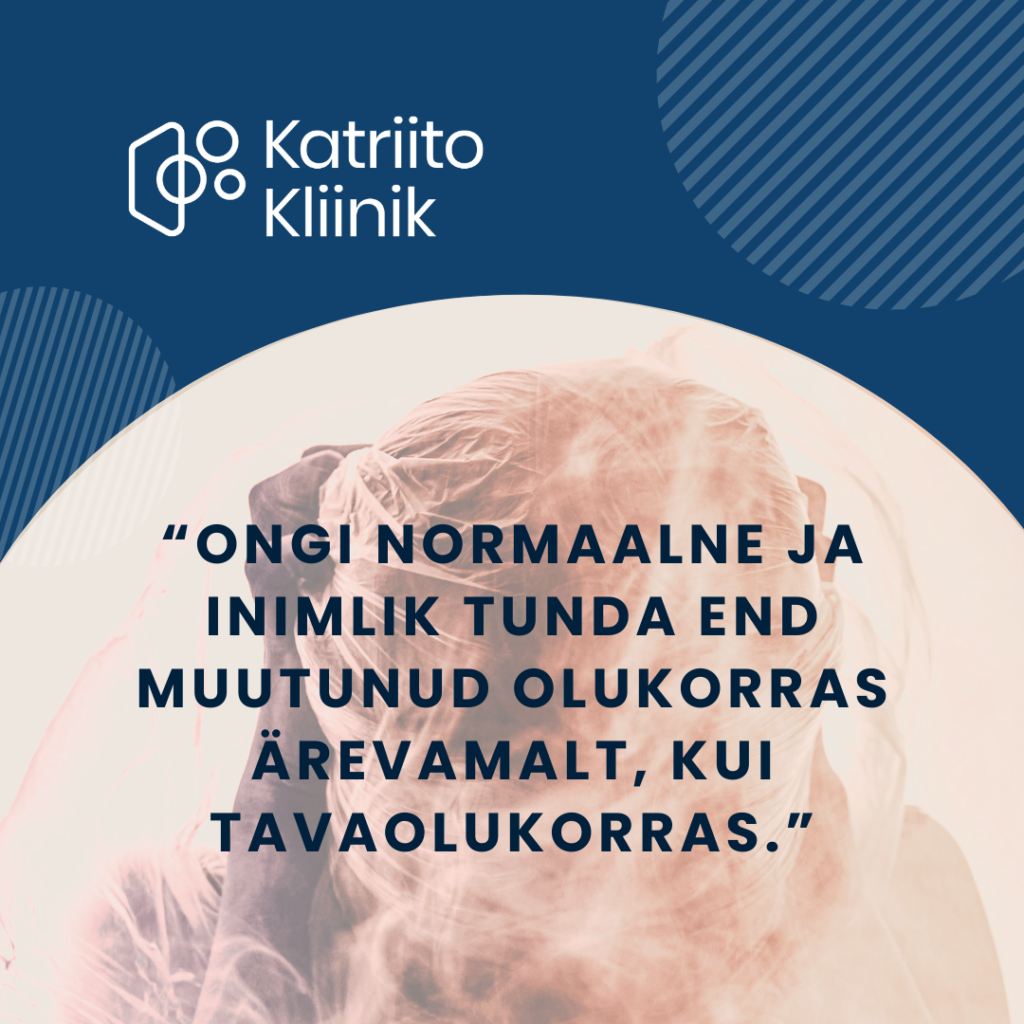The past few years have tested us all – the fight against COVID, economic instability, and the war in Ukraine. We have all been affected, some more, some less. That’s quite a lot for just a few years! Especially for generations who grew up in peace and relative stability, with the feeling that nothing bad could happen. That’s why increased stress levels and anxiety are becoming harder and harder to bear.
What to do to cope with anxiety? Here are some options!
The first thing psychologists suggest is normalization. It is perfectly normal and human to feel more anxious in a changed situation than usual. We all feel more stress, tension, and anxiety these days. Anxiety is a natural response given to us by nature, meant to help us notice danger and prepare to react. Unfortunately, nature didn’t fully account for prolonged uncertainty — constant stress wears down the body, and we become less ready to respond. That’s why we need to take control and start managing our stress ourselves. Does it sound logical — when stress increases, we need to do more to ease it?

Important in the context of anxiety and uncertainty: tolerating ambiguity
It is natural to want to keep the future as much under control as possible. When this isn’t possible, uncertainty and anxiety arise. People differ—some tolerate ambiguity better, others worse. Intolerance of uncertainty is also linked to various mental health disorders. For example, generalized anxiety disorder is characterized by pervasive worrying about possible future events. Worrying seems to help reduce feelings of uncertainty and lack of control. Unfortunately, constant worrying actually maintains and increases intolerance of uncertainty. And right now, there’s plenty of uncertainty around!
Worrying
Be aware of whether and how much you worry. In uncertain times, worrying increases and requires more conscious regulation. Worrying is negative-toned thinking that mostly focuses on future events. It can become such an automatic, habitual activity that we don’t notice it until we feel the tension and anxiety it causes. Usually, worrying can be recognized by anxious phrases like “but what if” or “what will happen if.” These phrases lead us to predict all the things that could go wrong. If we don’t stop ourselves from worrying, these scenarios can sometimes become very bleak.
What to do about worrying?
If you can already notice that you are worrying, there are several options. Interrupt those thoughts with an activity or postpone your worrying to a set time. If you can’t stop worrying altogether, schedule a specific time for it—for example, from 7:00 to 7:30 PM. That way, your worries are acknowledged before bedtime. Writing down your worries in more detail can also help. Putting your thoughts on paper can clear your mind and help you think more purposefully about specific problems and find solutions.
If you don’t want to postpone worrying but prefer to take action right away, you can do a small analysis that might look something like this:
- “What am I reacting to right now, and why am I thinking this way?”
- “Can I do anything about this right now?”
- “When can I do something about this?”
- “Is this even within my control?” (Right now, many things are beyond our control!)
If something can be done immediately, start taking action. If not, set a deadline for when it can be addressed. This helps create a sense that the problem is being dealt with and reduces the need to think about it constantly. Additionally, it allows you to better understand the nature of the problem and clarify your worries.
If solving the problem is beyond our control, stop worrying by recognizing that worrying actually doesn’t help at all. It’s more helpful to focus on what we can manage and set aside our worries.
Many people, both young and old, have started to regulate their social media and news consumption more consciously. This is a particularly suitable way in current times to reduce worrying by not constantly keeping up with every negative news story.
What else can be done?
In recent years, there has been much talk about balance—and for good reason. The more stress and anxiety we experience, the more effort we need to put into achieving balance.
What should be balanced?
When there is stress, it needs to be relieved. For example, if an electrical system experiences an overload, it results in a short circuit and a shutdown. We carefully protect our electrical systems from overload! The same applies to human stress — if it’s not relieved, overload builds up and eventually leads to shutdown — we become unable to function, our health deteriorates, and balance is lost. How relief is achieved and what helps varies individually, but rest, sufficient sleep, physical activity, balanced and adequate nutrition, socializing with loved ones and friends, and engaging in activities unrelated to work or household duties always benefit everyone. The key words are “well-being and enjoyment.”
If you’re thinking, “I do these things, but they don’t help,” it’s worth checking whether what you’re doing actually brings you enough well-being and recovery. Are you doing it regularly? Stress relievers sometimes need an update or refresh. Doing the same hobby for 20 years may no longer spark joy. We probably all know someone who, in their prime, started something completely unexpected—and maybe we’ve been a little envious of them. Why not try it yourself?
Physical activity is also very helpful!
Take a moment to assess your physical condition. Does your fitness need improvement? For example, during the COVID pandemic, many people became more active, spending time outdoors and on hiking trails — unfortunately, this has often declined since then. Remember that physical activity is a tool to improve both your physical and mental health.
In summary
Awareness and acceptance that, especially in these times, we need to pay more attention to and manage stress and overall health are very important. What worked before may no longer be enough, as stress and anxiety levels are higher for all of us. Notice and regulate your worrying, find and create things that bring you well-being, and maintain your physical health. This way, you become stronger and healthier to cope during challenging times. While we, as individuals, cannot change the general situation in the world, we can influence our own health and resilience.
P.S. If stress and anxiety have become overwhelming and it feels like you can’t improve things on your own, allow yourself to seek help and support from a psychologist.
Anneli Lillepea
Psychologist-counsellor


